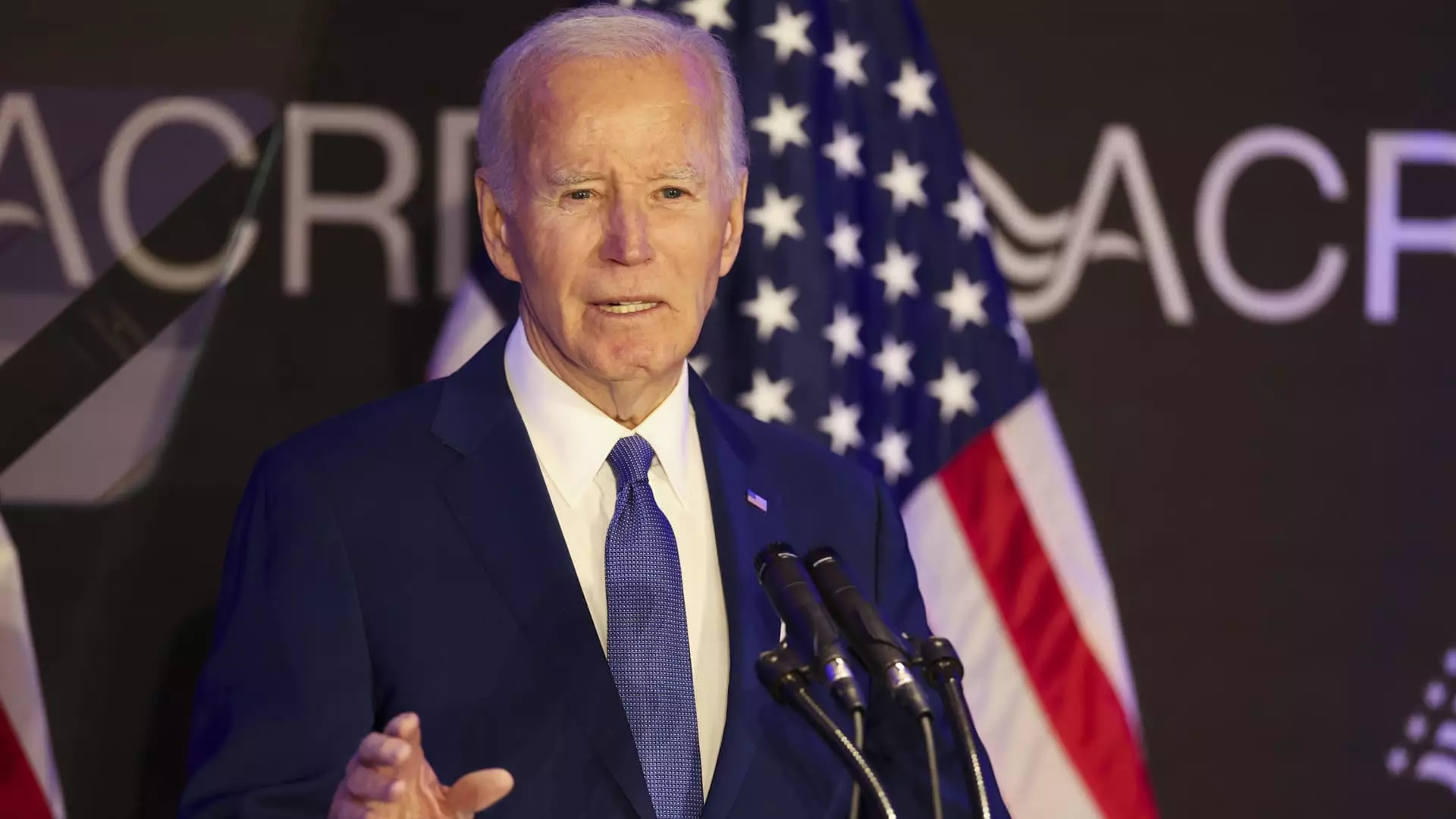In a startling turn of events, Former President Joe Biden has been diagnosed with prostate cancer, as announced by his office on Sunday. The diagnosis comes after Biden sought medical attention due to urinary symptoms and the discovery of a prostate nodule. What should strike us is not merely the diagnosis itself but the gravity of the situation; cancer cells have reportedly spread to the bone, marking a significant turning point in Biden’s health narrative. At 82, this health scare raises pressing concerns not only about Biden’s personal endurance but also about the implications for the political landscape he has navigated.
Biden’s Gleason score of 9, indicating an aggressive form of cancer, leaves little room for optimism. The score serves as a grim reminder of how quickly one’s health can deteriorate and how precariously our leaders can stand in the face of life’s harsh realities. It is a profound irony that the very institution meant to project strength and stability can be so vulnerable.
Facing a Political and Personal Crossroads
Essentially, Biden’s diagnosis presents a dual challenge—one that shifts the focus from governance to personal well-being, but inevitably intertwines with his political legacy. The current administration has prioritized its “cancer moonshot” initiative, aimed at reducing cancer mortality rates. This initiative is, for Biden, not just political rhetoric but a deeply personal mission borne from the loss of his son, Beau, who succumbed to brain cancer. One cannot help but wonder how much of this initiative was also a means of coping with personal tragedy while attempting to show the public that he is a leader who understands the stakes of life and death.
Yet, the awareness that Biden’s health concerns have been downplayed by aides, as revealed in Jake Tapper’s book “Original Sin”, casts a long shadow over his presidency. How can the public trust a leader who may not be entirely forthright about his capacities? Sitting in the Oval Office, grappling with an aggressive form of cancer, juxtaposes the need for transparency against the relentless pressures of political survival.
A Show of Unity Amidst Political Rivalry
Following the announcement of Biden’s diagnosis, an array of political figures, including his fiercest opponent, Donald Trump, publicly expressed condolences and well wishes. Trump’s acknowledgment of the gravity of Biden’s condition is noteworthy for several reasons; firstly, it highlights a moment of rare bipartisan unity at a time when the political climate feels increasingly fraught with division. It challenges the fabrications of extreme partisanship and reminds us of our shared humanity, particularly when it relates to fundamental concerns such as life and health.
Kamala Harris’ heartfelt sentiments also reflect an understanding of Biden as a steadfast leader and a “fighter.” Yet, this kind of language can feel like both an encouragement and an unspoken acknowledgment of the looming uncertainty that surrounds Biden’s capacity to continue in his role. The dichotomy of being a strong leader facing life-threatening illness projects both vulnerability and strength, qualities that the public often seeks in their leaders.
The Political Ramifications of Illness
Biden’s 2024 re-election bid has become a turbulent sea for Democrats. After a debacle during a debate earlier this year that led to speculation about his potential withdrawal, the revelation of his health status will act as both a rallying point and a cause for concern. The question arises: can voters, who were already uneasy about his age and health, rally behind a candidate facing such a severe health crisis?
Moreover, if Biden does step back, what are the implications for his party and the political machinery? A shift in leadership wouldn’t just rearrange the political chessboard but would also signify a need for a re-evaluation of priorities surrounding health care, aging, and the overall narrative of leadership in an era where age presents additional challenges.
Ultimately, Joe Biden’s prostate cancer diagnosis encapsulates a remarkable moment where the personal becomes political, and health issues reveal the fragile tapestry of leadership in America. As the nation holds its breath in anticipation, we are reminded that behind the political facades are people who grapple with life’s harshest realities.

Leave a Reply